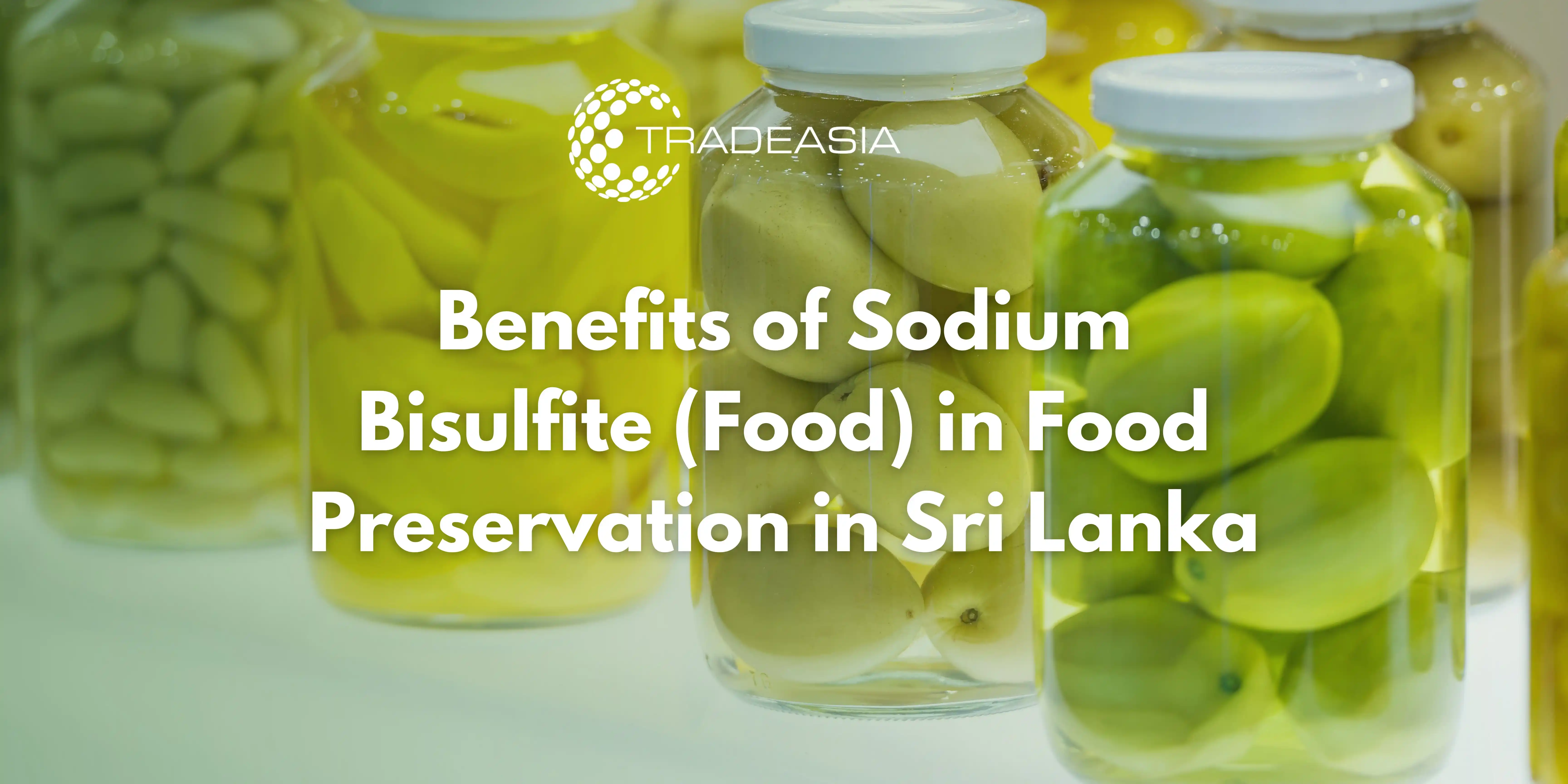Sodium bisulfite (food grade) is a chemical compound widely used in the food preservation industry around the world. In Sri Lanka, the use of sodium bisulfite has gained popularity due to its ability to prolong the shelf life of food products. This article will explore the various benefits of sodium bisulfite in food preservation and its significance in maintaining the quality and freshness of food products produced in Sri Lanka.
What is Sodium Bisulfite?
Sodium bisulfite, with the chemical formula NaHSO₃, is an inorganic compound known for its use as a preservative and bleaching agent. In its food-grade form, sodium bisulfite is commonly used in the food industry to prevent microbial growth, inhibit oxidation, and preserve the color and flavor of food. The compound works by releasing sulfur dioxide (SO₂) ions, which exhibit antibacterial and antifungal properties.
In food processing, sodium bisulfite is especially used for products that are prone to spoilage, such as dried fruits, vegetables, and beverages. In Sri Lanka, known for its tropical food production, sodium bisulfite plays an important role in preserving exported products like coconut, tea, and spices.
Benefits of Sodium Bisulfite in Food Preservation
-
Inhibits Microbial Growth
One of the key benefits of sodium bisulfite is its ability to inhibit the growth of microorganisms that can spoil food. In the processing of perishable food products, particularly those with high water content, sodium bisulfite is essential in preventing bacterial and fungal growth. This is particularly useful for products sold in large quantities, both domestically and internationally.
-
Prevents Oxidation and Color Changes
Oxidation is a process that can lead to changes in the color, flavor, and texture of food. Sodium bisulfite acts as an effective antioxidant, preventing oxidation in food products like dried fruits and processed vegetables. Products preserved with sodium bisulfite will retain their fresh color, which enhances the product's visual appeal in the market.
-
Extends Shelf Life
By preventing microbial growth and inhibiting oxidation, sodium bisulfite significantly extends the shelf life of food products. This is crucial for Sri Lanka's exported goods, which must have a long shelf life during international shipping. As a result, sodium bisulfite enables food products to remain fresh and safe for consumption over extended periods.
-
Maintains Organoleptic Quality
Sodium bisulfite also plays a role in maintaining the organoleptic properties of food, including taste, aroma, and texture. By preventing chemical changes in food, this compound helps preserve the original flavor and texture. For example, dried fruits preserved with sodium bisulfite maintain their natural sweetness and chewy texture, providing a pleasant experience for consumers.
-
Enhances Food Safety
Food safety is a primary concern in the food industry, particularly in international markets. Sodium bisulfite helps ensure that processed food products are free from harmful microorganisms that could cause foodborne illness. By using sodium bisulfite in products like dried fruits, processed vegetables, and beverages, manufacturers can guarantee the safety of their products for consumers.
Applications of Sodium Bisulfite in the Food Industry in Sri Lanka
-
Preserving Dried Fruits and Vegetables
In Sri Lanka, tropical fruits like coconut, pineapple, and mango are widely produced and exported in dried form. Sodium bisulfite is extensively used in the processing of dried fruits to preserve their bright colors and freshness. Without this preservative, dried fruits would quickly turn brown, reducing their market value and quality.
-
Beverage Processing
Sodium bisulfite is also used in the beverage industry, such as in fruit juices and wine, to prevent oxidation that can affect the flavor and color. This compound helps to maintain the product's quality, ensuring that the beverages remain fresh during both production and storage.
-
Spices and Tea Products
Sri Lanka is one of the largest producers of tea in the world. Sodium bisulfite is used to preserve the quality of tea leaves and spices, preventing spoilage due to moisture. Tea products that are treated with sodium bisulfite retain their aroma and flavor during export.
Considerations for Using Sodium Bisulfite
While sodium bisulfite offers many benefits, it must be used by regulatory guidelines. Excessive use of sodium bisulfite can cause allergic reactions in some individuals who are sensitive to sulfur dioxide. Therefore, food producers in Sri Lanka need to adhere to the proper usage standards set by food safety authorities.
Conclusion
Sodium bisulfite is an essential compound in the food preservation industry in Sri Lanka, known for its ability to prolong shelf life, preserve freshness, and enhance food safety. With its widespread use in dried fruits, beverages, and tea products, sodium bisulfite ensures that Sri Lankan food exports maintain their quality during international shipping. By inhibiting microbial growth, preventing oxidation, and maintaining organoleptic qualities, sodium bisulfite plays a critical role in the Sri Lankan food processing industry.

Leave a Comment